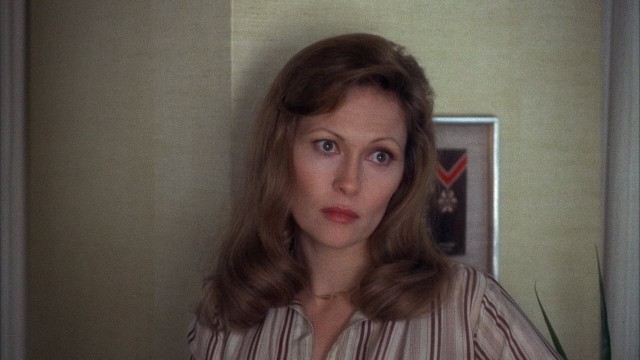At this year’s Sundance Film Festival, news reporter Christine Chubbuck made a mark. 42 years after she committed suicide on live television, Christine became the subject of a biopic dealing with her depression, and a documentary about an actress preparing to play Christine as an examination of identity and self in the world of television and acting. For 40 years, Christine was the silent muse underlying one of the greatest prophetic horror comedies of the 70s.
Sidney Lumet’s Network was ostensibly a savage satire of television in the 1970s. Inspired by Chubbuck’s televised suicide, the media frenzy around Patty Hearst and Charles Manson, and PBS’ original venture into reality television, Network digested everything happening in the 70s and protracted that into a bitter reality of capitalist ideals that run over every ounce of moral fiber in American society. By 2000, it developed a reputation for being a work of pure prophecy. I fear that this year is the year it becomes quaint.
Howard Beale is an august news anchor man, hard drinking, depressed, and about to get canned because of low ratings. When he threatens to kill himself on television, his ratings skyrocket…and then he has an epiphany. He begins to channel the societal rage present in the 1970s, launching him into the spotlight as the one true voice of the people…until he comes up against his corporate sponsors.
Paddy Chayefsky’s Oscar-winning screenplay is direct, unforgiving, quotable, insightful, horrifying, and hilarious. Some reviewers, including Pauline Kael, saw it as shrill and hollow. Ebert, at the time, thought it was sharp but messy. His comment, “It attempts to suggest that multinational corporations are the only true contemporary government, but does so in a scene that slips too broadly into satire, so that we’re not sure Chayefsky means it” seems horrifying in a world where Bernie Sanders and Donald Trump are both riding waves of anti-corporate politics to huge success.
While much has been written about the men, many see Diana Christensen as a sexist shrill harpy of a caricature. She’s not. She’s a reality that exists without gender. She’s a fast talking, tough-as-nails, emotional wall of a person where everything she says is calculated to a maximal degree. She’s a politician as an executive. She proudly introduces herself to an underground Black Power movement with, “Hi. I’m Diana Christensen, a racist lackey of the imperialist ruling circles” and you can almost hear Donald Trump loudly proclaiming his bias at the forefront. You can read Diana in all sides of the leaked Sony letters. Sure, Diana is no hero, but there are no heroes in Network: Max Schumacher is just as guilty as Diana Christensen in degrading the state of society, even if he isn’t willing to admit it (Diana puts him on notice early, saying “I watched your 6 o’clock news today; it’s straight tabloid.”); Howard Beale is the prophet of the film, even if it seems to satirize the idea; Diana isn’t a heroine as she sprints right for the lowest common denominator. She may not be a hero, but she’s a reality.
The first time I saw Network was on TCM ages ago. The plot summary of “Howard Beale, a man killed because of low ratings” was too good to miss. I wasn’t expecting it, and any hyperbole for the film is too little. It’s a shrill, loud, ranty, screed-filled, black comedy that throws any attempt at subtlety out the window. It’s also ambitious, broad, political, cynical, shocking, brutal, unflinching, and poignant. There hasn’t been a film to capture so much of an era in so small a package, and points to so much of society’s ills with so fine a point (the closest we’ve come is Southland Tales, a far far messier film that captures a society on the brink). Network is a near perfect film.
Network airs on TCM at 10pm.

